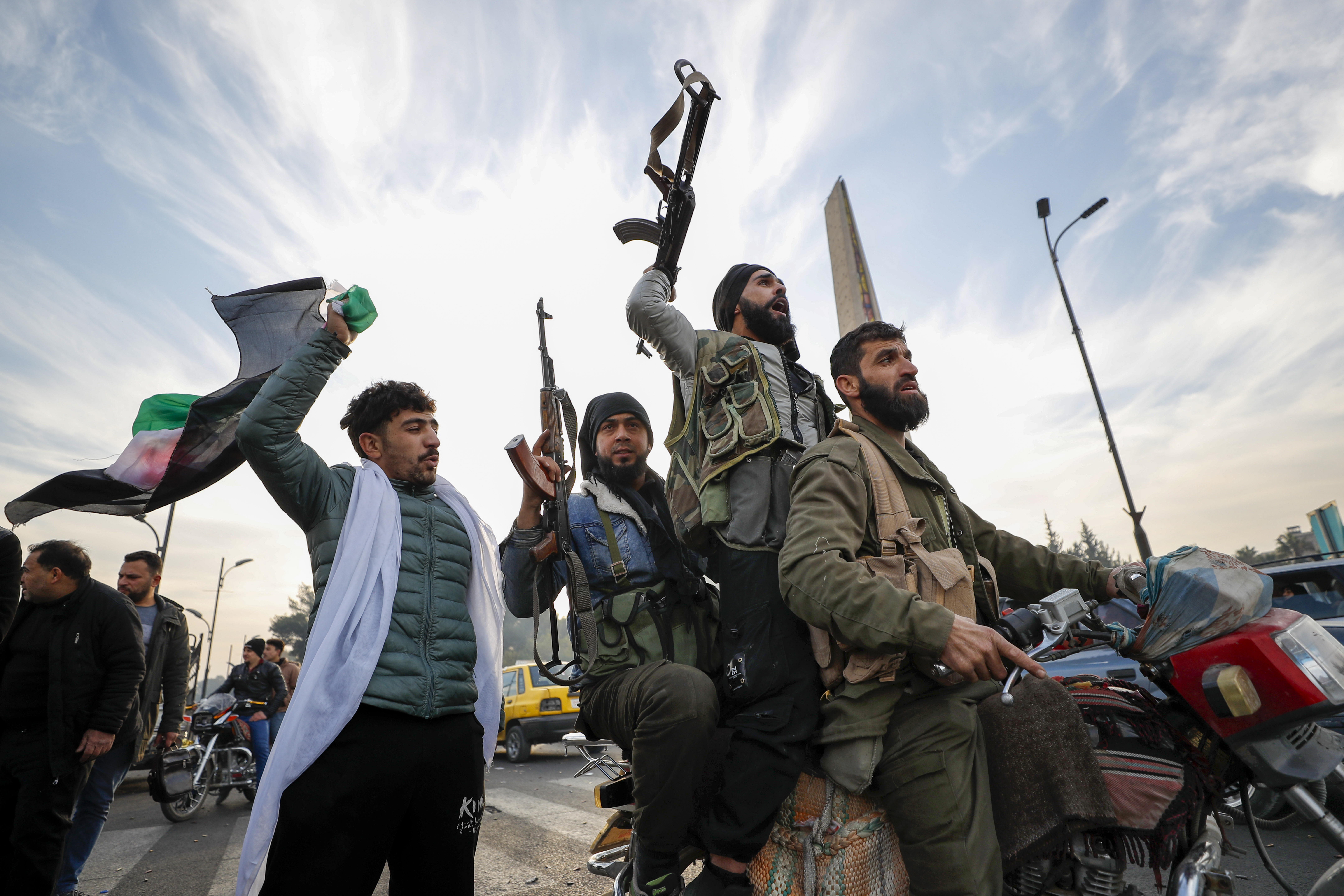US discusses removing terror label from primary Syrian insurgent faction
The downfall of Assad represents a significant turning point for the Middle East.

This is the question that top national security officials are grappling with as they assess the Islamist insurgent group that played a pivotal role in the overthrow of Bashar al-Assad’s regime in Syria.
The actions of Hayat Tahrir al-Sham (HTS) significantly undermined Iran and Russia, both of which had supported the Assad government for their own geopolitical interests.
HTS, under the leadership of Abu Mohammed al-Golani, is recognized as a U.S.-designated terrorist organization. Al-Golani had affiliations with al Qaeda for many years before severing ties and denouncing the group in 2016. Since that time, he has actively sought to reframe both his image and that of HTS, which consists of previously fragmented militant factions, as a moderate alternative to Assad's rule.
In Washington, there is an intense debate underway regarding HTS, according to four current and former U.S. officials familiar with the discussions. All have requested anonymity to speak freely about internal policy considerations. “There is a huge scramble to see if, and how, and when we can delist HTS,” remarked one current official.
U.S. law allows the Secretary of State to designate groups as foreign terrorist organizations (FTOs) if they engage in terrorism that poses a threat to U.S. security. This designation enables the imposition of sanctions and criminal prosecution against the group and its supporters. A president can remove an organization from the FTO list, as the law permits the Secretary of State to revoke a designation at any time. However, such decisions typically come after prolonged internal discussions among national security officials, not to mention the complex political landscape surrounding any such move: No president desires to appear as though they are granting a lenient pass to terrorists through a premature lift of FTO designation.
There is no mourning in Washington for the fall of Assad, a dictator known for his involvement in extensive atrocities and war crimes, nor for the significant challenges this downfall presents for Iran and Russia. Yet officials are questioning whether al-Golani is the genuine moderate transitional leader he claims to be or merely a rebranded version of his previous self.
Initial signs are somewhat encouraging. HTS has announced cooperation with Syria’s Prime Minister, Mohammed Ghazi Jalali, to establish a transitional government, marking a relatively peaceful shift since Assad's ouster. The group has also granted amnesty to all Syrian conscript soldiers and reservists and pledged not to dictate how women should dress.
Nevertheless, early indicators are not definitive.
Israeli officials are cautious about the implications of a post-Assad Syria, despite celebrating his removal. Israel’s ambassador to Washington, Michael Herzog, stated that Assad's downfall represents “a major blow” as it diminishes Iran's ability to channel arms to proxy militant groups like Hezbollah and Hamas.
Yet, he also stressed the need for caution. “There are no good guys in this story, because you have jihadists … We don't want jihadis to put their hands on strategic capabilities like chemical or other types of capabilities that are there in Syria. We will have to follow it very closely,” Herzog noted while speaking at the Reagan National Defense Forum in California.
Similar apprehensions exist in Washington, especially among Republicans as Donald Trump prepares to return to the White House in January. “Lots of groups say the right thing as they come into power because they’re concerned that their hold on power is fragile and then once they consolidate power they focus on implementing their ideology,” observed Gabriel Noronha, a former Trump administration official with expertise in Middle East policy. He currently serves as executive director of the Polaris National Security organization.
Al-Golani “has to be judged over the course of his career not just what he’s done over the past few months,” commented Nathan Sales, the former top State Department counterterrorism envoy during the Trump administration. “When you look at his resume, it’s a blue-plated terrorist resume.”
“We should all be very skeptical of the ability of HTS to deradicalize itself at the moment of victory,” Sales added.
Biden administration officials have adopted a cautious wait-and-see posture, indicating they will monitor HTS's actions to assess if they follow through on their early commitments. The U.K. and the European Union appear to be taking a similar stance. “As HTS takes on greater responsibilities, we will need to assess not just their words, but also their actions,” remarked EU spokesperson Anouar El Anouni.
Al-Golani and HTS will play a crucial role in forming a new Syrian government, and whether HTS retains its U.S. terrorism designation will influence how the post-Assad Syria navigates out from under Western sanctions.
U.S. presidents and lawmakers are usually more cautious about lifting sanctions than imposing them due to the political ramifications involved. A president’s ability to lift sanctions may also hinge on whether legislation was enacted to establish those penalties, which could limit their options. This concern applies to both Biden and Trump.
"The president likely will want to get comfortable with any new regime in Syria before making changes to the U.S. sanctions, in order to maintain the leverage the sanctions provide him and to avoid rewarding any new government with strong ties to terrorist groups," stated David Mortlock, a former U.S. official with significant experience in sanctions issues.
Joe Gould contributed to this report.
A version of this story previously appeared in PMG’s National Security Daily newsletter. Like this content? Sign up below!
Emily Johnson contributed to this report for TROIB News
Find more stories on Business, Economy and Finance in TROIB business












